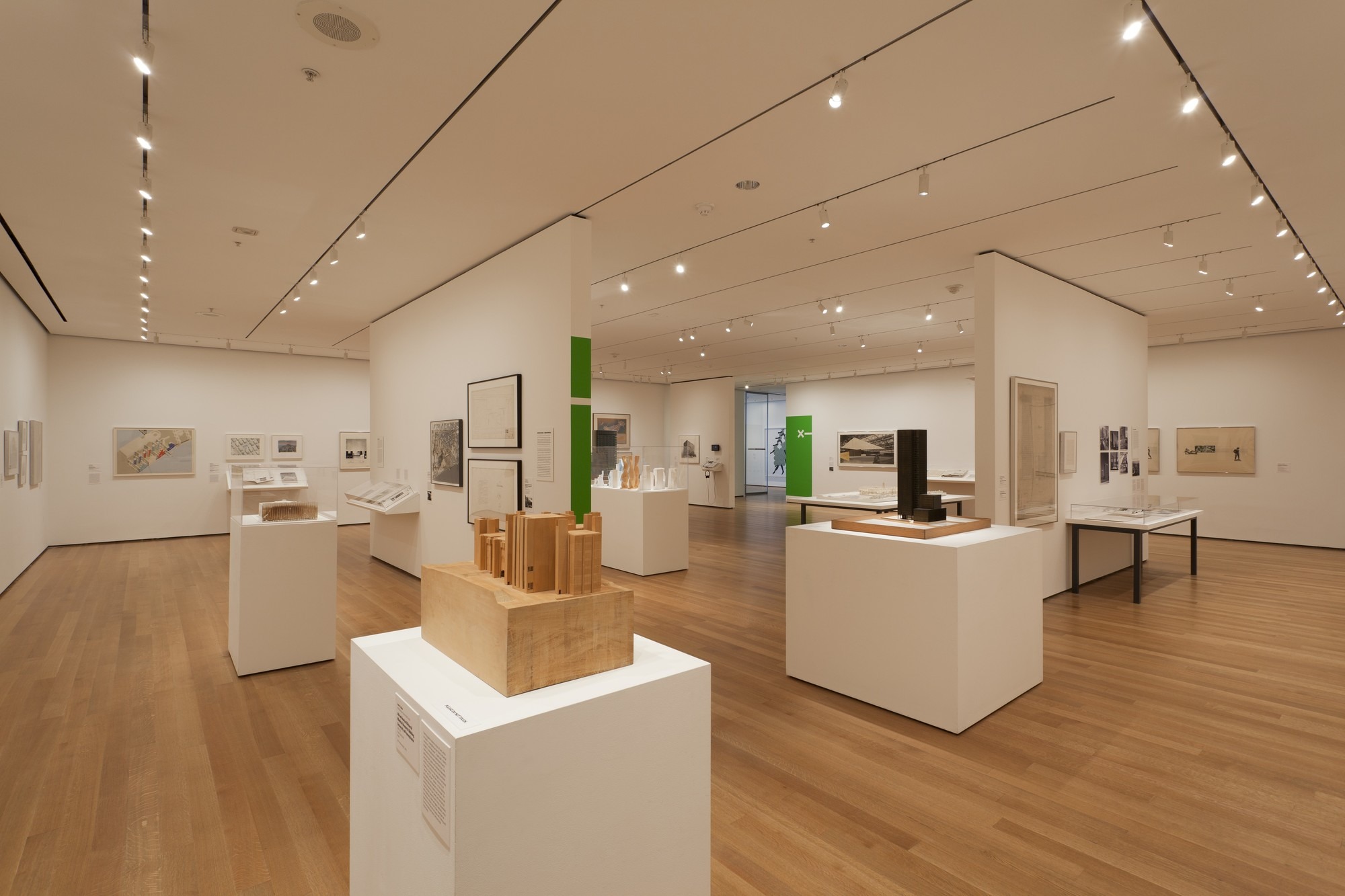194X–9/11: American Architects and the City
01 Jul 2011 - 02 Jan 2012

Installation view of the exhibition, "194X-9/11: American Architects and the City"
July 1, 2011–January 2, 2012. IN2164.21. Photograph by Jonathan Muzikar.
July 1, 2011–January 2, 2012. IN2164.21. Photograph by Jonathan Muzikar.
In 1942—shortly after the U.S. entered World War II—Architectural Forum magazine commissioned a group of architects, including Ludwig Mies van der Rohe, to design projects for a hypothetical postwar American city, rethinking both urban community life and the relationship between architecture and urban planning. The aim was to project an optimistic postwar period of growth and prosperity to begin as soon as hostilities ended, in 194X—soon, it was hoped. Over half a century later the country is once again engaged in global conflict and—in the wake of 9/11 and the ongoing financial crisis—undergoing a major reconsideration of urban and suburban space. This year marks the 10th anniversary of 9/11, an event that ushered in a new era of architectural anticipation and uncertainty, and gave rise to a flurry of urban rebuilding projects, some of which are only finally seeing the light of day at Ground Zero. Drawn from MoMA’s architectural holdings, this exhibition shows the work of a variety of architects who took on the urban scale in a spirit of recasting the form and daily experience of the city. In addition to Mies van der Rohe, featured architects include Louis Kahn, Paul Rudolph, Rem Koolhaas and OMA, and United Architects.
